Highly Effective Whole-House Water Filtration for Lead, PFAS Chemicals & More!
Similar to the indoor air quality services that our team at Save Home Heat Company has been providing homeowners in the Denver-Boulder area for many years, our expanded water quality team is doing the same in helping to educate our customers on a range of issues that can also have an impact on their health and wellbeing.
In this post, we’ll take a look at the dangerous element lead, which can be found in varying levels in water supplies, especially in older communities where aging, out-of-date municipal piping systems have been in use. We’ll also introduce a proven way to help safeguard the health of your family, no matter where your home’s water comes from.
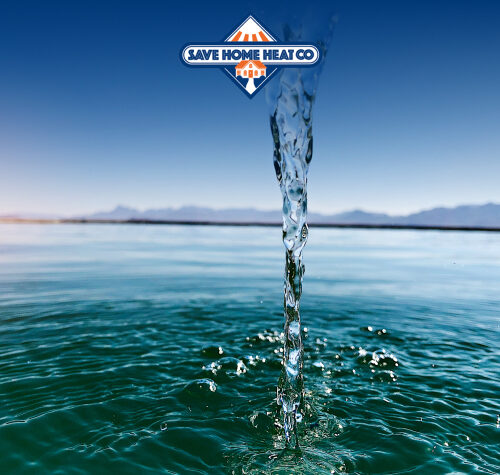
Introducing the PIONEER Pb Whole-House Water Filter
The patented PIONEER Pb from Enpress is a whole-house, point-of-entry (POE), inline water filter designed to effectively remove a wide range of harmful substances from a home’s water supply. On top of being highly effective at removing lead, the PIONEER Pb is also very effective at removing a range of other water contaminants and potentially impactful substances, including PFAS chemicals, chlorine, and more.
According to Enpress, the PIONEER Pb is a comprehensive, high capacity, whole-house filtration system that removes lead, cysts, and PFOA/PFOS chemicals. Its proprietary activated carbon filter block provides dual filtration action as both a particulate filter and also as a soluble chemical filter. Designed at a 0.5 micron nominal filtration level, the Pb system removes both particulate (minuscule physical grains) and soluble (which must be removed chemically) lead from your drinking water.
For those readers who are curious about the extremely small size particles we’re talking about, here, 1 micron = 1/1,000 of a millimeter, or . 00003937 inches. Very small, indeed!
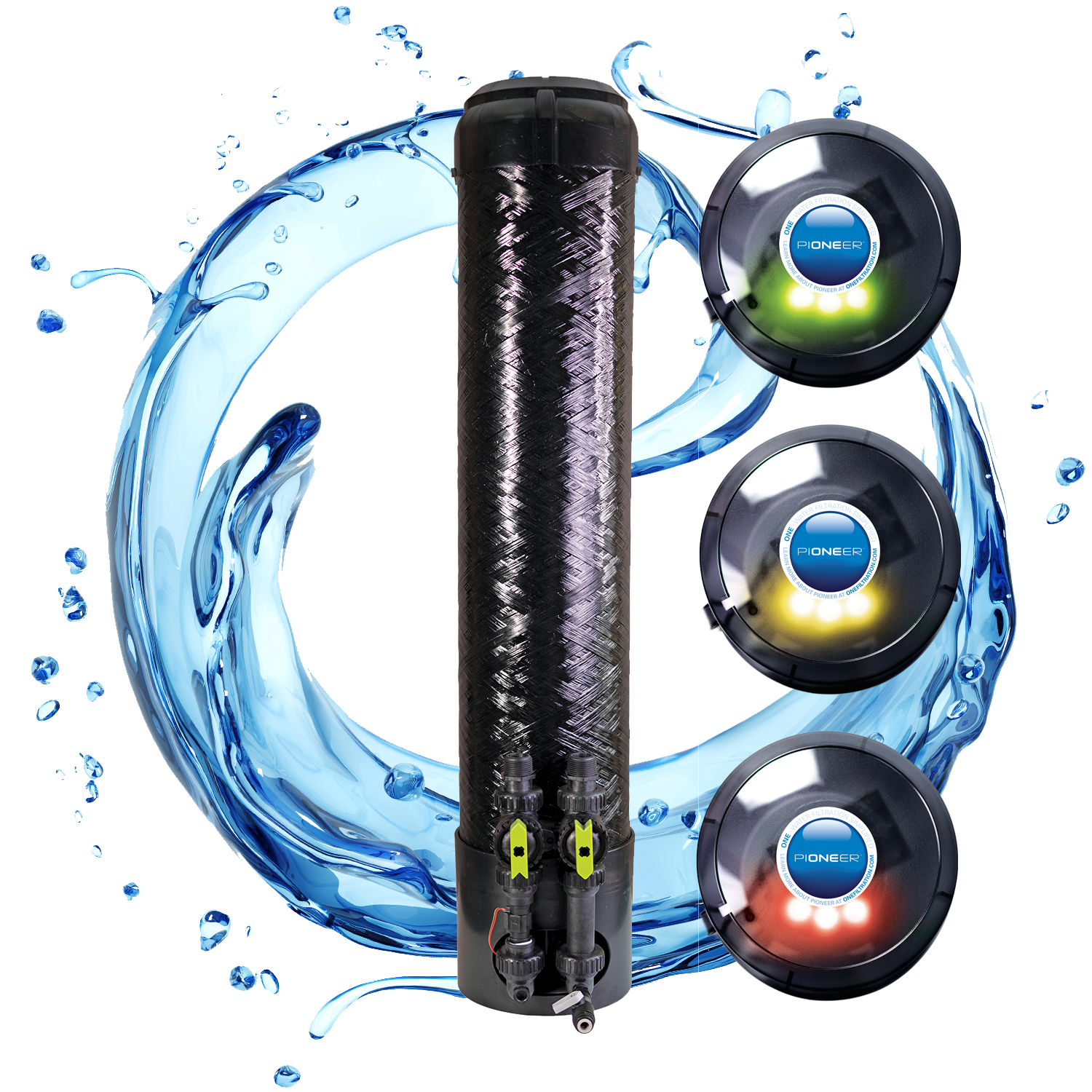
With a permanently installed, customer-friendly filter housing that’s approximately 8” in diameter and 40” tall, another benefit of the PIONEER Pb is that it eliminates the need for water delivery services – which often involve 5 gallon carboys that need to be lugged around!
But First: Some Background on Lead in Water Piping and Our Environment
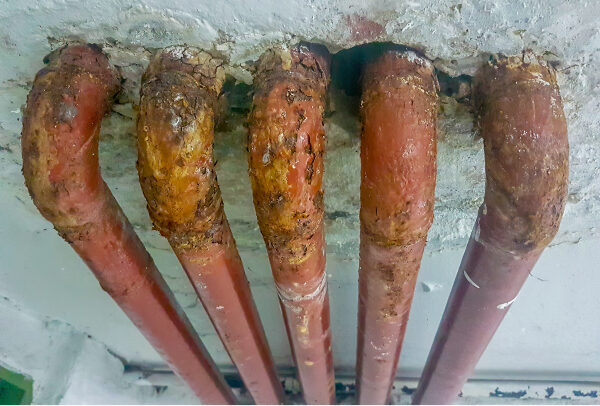
Until it was finally banned in new home construction in 1986, more than 70% of cities in the U.S. used lead-based products for transporting water because they were less expensive and more durable than iron pipe and fittings. In addition, lead pipe could be easily bent, allowing it to be shaped to fit existing buildings or other structures. Just 38 years after piping containing lead was prohibited in our country, it can be seen that the presence of lead in some of our water supplies may be pervasive.
Unfortunately, lead in water piping was only part of the problem that was identified. A heavy metal which is found naturally in the Earth’s crust, lead can now be found in elevated levels in our environment, in air, soil, and water, due primarily to past activities that included industrial processes, mining, the use of leaded gas, and older lead-based paint in buildings.
Potential Health Impacts of Lead Exposure
Let’s take a closer look at why so many health authorities continue to express growing concern over this heavy metal.
Lead Exposure in Children
Lead is a potent neurotoxin which can have significant effects on childhood health and development. According to the Centers for Disease Control and Prevention (the CDC), lead exposure can affect nearly every system in a child’s body, inhibiting both physical and mental development. Research shows that children with lead poisoning can experience learning and behavioral problems, in addition to suffering from hyperactivity, inhibited growth, and hearing loss. Symptoms such as tiredness, headaches, and stomachaches, and iron deficiencies are often mistaken for other illnesses or conditions, before an accurate diagnosis is obtained. The only way to confirm lead poisoning is through a blood test.
Of note, the American Academy of Pediatrics states that there are no effective medical treatments for lead poisoning and that prevention of exposure is needed.
Lead Exposure in Adults
Adults are not immune from the negative health impacts of lead exposure, either. Lead exposure in adults can trigger high blood pressure, as well as complications in brain, kidney, and reproductive function. Symptoms of lead poisoning in adults include headaches, stomach cramps, constipation, muscle and joint pain, fatigue, insomnia, mood swings, and loss of sex drive. Again, a blood test is the only reliable way to determine if lead is the culprit, and these symptoms are not exclusive to lead exposure.
Keep in mind that the general consensus in the medical and community is that there is no safe level of lead for the human body, and unlike other metals, it has no useful biological function. Even consuming low concentrations of lead can potentially cause a significant increase in lead levels in your body, and any resulting damage is considered to be irreversible.
What’s the Background of Lead in Drinking Water?
Lead can enter drinking water when water delivery service lines that contain lead corrode. This most often occurs in older water main piping located under streets, which carries water from a municipal treatment plant to people’s homes. The release of lead into water that’s being carried by this piping is strongly influenced by the chemistry of the water, and by physical disturbances such as nearby road construction or water main replacements.
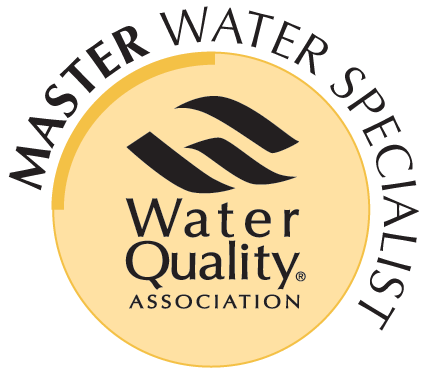
The Denver Water Lead Reduction Program Continues
Many homeowners in Denver and the surrounding communities who are also served by the utillity Denver Water are very likely already aware of Denver Water’s Lead Reduction Program, which was approved in December 2019 (and reapproved in 2022) by the Environmental Protection Agency (EPA) and the Colorado Department of Public Health and Environment. This program exists to remediate lead contamination in parts of Denver Water’s system that are served by aging, deteriorating piping that contains lead. Whether you live in the Denver Water district or not, the program webpage contains lots of helpful information.
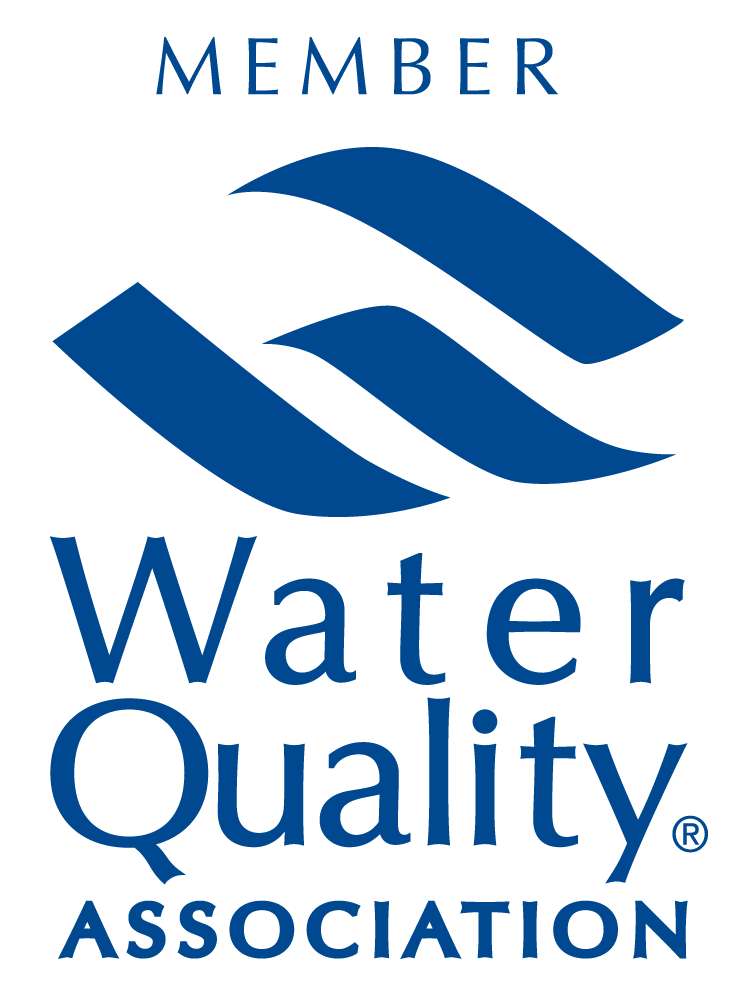
What are the Current Standards for Lead in Our Water?
The above question is a bit tricky to answer, because the numbers are different depending on if you’re talking about what the EPA has set as a goal, compared to levels of lead that can be expected to be achieved by a municipal water system. In addition, the Food and Drug Administration (FDA) standard for lead in water bottles is different, too.
Here’s some regulatory food for thought regarding levels of lead in water:
- MCGL: The EPA’s “Maximum Contaminant Level Goal” (MCLG) for lead in drinking water is a straight 0 parts per billion (ppb). Nothing! Unfortunately, the EPA has concluded that’s not achievable and therefore, this MCLG is non-enforceable
- Drinking Water Action Level: The EPA has established a Drinking Water Action Level of 15 ppb for municipal water systems. This means that if the water test measurement exceeds 15 ppb of lead in more than 10% of measurements taken in a specific case, then action must be taken (ex: line replacement, education, free water filters, a combination of strategies, other)
- Our Municipal Standard: The Action Level referenced above, 15 parts per billion, is the standard for lead that governs the water delivered to our homes in the Denver-Boulder metro area
- Bottled Water Standard: On a separate note, the FDA standard for lead in retail bottles of drinking water is 5 ppb
If the above information seems a bit confusing and potentially concerning (possibly at odds with what seems best for our health), you’re not alone. Our water quality team at Save Home Heat shares these concerns, and so do a growing number of homeowners nationwide.
The PIONEER Pb whole-house water filter is a high quality product that will help alleviate your concerns about consuming lead in your water, and provide you with greater peace of mind.
Removing Chlorine, Chloramine, Cysts & PFAS Chemicals from Water Supplies
Not only does the PIONEER Pb remove lead from water, it also effectively removes or mitigates the chemical sanitizers chlorine and chloramine, PFAS chemicals, and certain harmful parasites. Let’s take a look at these other contaminants that this broad spectrum water filter also addresses.
Chlorine and Chloramine: The sanitizing benefits of chlorine and chloramine in municipal water supplies are well known for their significant health and safety benefits, but there are also some drawbacks to using these chemicals, including potential issues of a hygienic and health nature. Fortunately, products such as carbon water filters and the PIONEER Pb can mitigate those negative impacts.
PFAS chemicals: Also known as “forever chemicals,” PFAS chemicals continue to attract attention in the healthcare and scientific research communities. This is due to questions that have been raised about a range of health issues that are increasingly linked to these compounds. Once common in the packaging and good storage industries, PFAS chemicals are now essentially banned in the U.S. Unfortunately, many products in our lives come from outside the U.S., in some cases where regulations are not as strict.
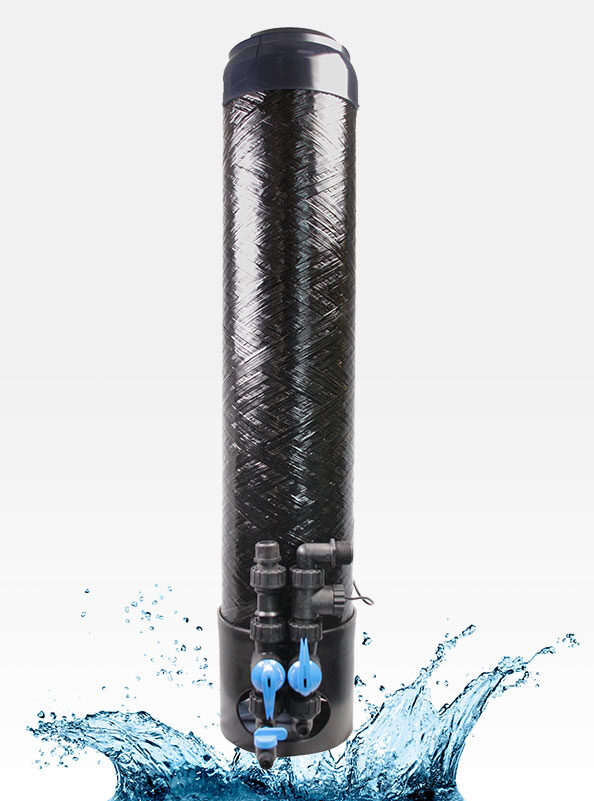
Cyst Parasites: Without getting too scientific, cysts are a type of microbe, or microorganism. Some are found in water, and while many are harmless, others such as the parasites Giardia and Cryptosporidium cysts can lead to diseases that exhibit symptoms such as dehydration, diarrhea, nausea and stomach cramps. It’s difficult to kill these parasites because they have an outer membrane that resists even chlorine bleach, and they can survive in cold water for several months. If found to be present, the recommended strategy includes filtering these cysts out of the water supply.
How Effective is the PIONEER Pb Water Filter?
The answer is very effective! But first, here’s a little more on how the PIONEER Pb does its job removing lead. As mentioned above, it’s a dual pronged approach. First, the PIONEER Pb filter is precisely engineered to physically remove extremely small particles from water; it’s a 0.5 micron-rated particle filter. In addition, the PIONEER Pb carbon block absorbents are designed to chemically react with soluble lead that’s suspended in solution, creating an ionic bond that “kinetically” removes lead from the water. We’ll stop explaining here, before the ‘hard science’ kicks in.
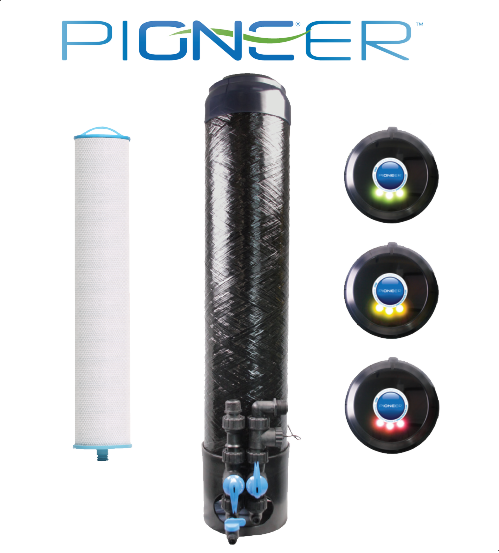
PIONEER Pb Performance Numbers
The PIONEER Pb was tested at both 4.51 gallons-per-minute (GPM) and 8 GPM water flow rates, which are moderate- and high-end for residential applications. The following test results give a good indication of how this product will perform in the average Boulder-Denver area home:
- 99.62% lead removal
- 97.9% PFOA/PFOS chemical (common PFAS chemicals) removal
- Greater than 99.95% removal of Giardia and Crypto cysts, as well as chlorine and chloramine
Industry Certifications of the PIONEER Pb
- UPC: Designated as an American National Standard, the Uniform Plumbing Code (UPC) is a model code developed by the International Association of Plumbing and Mechanical Officials (IAPMO) to govern the installation and inspection of plumbing systems as a means for ensuring the public’s health, safety, and welfare
- IAPMO Water Quality Platinum Seal: This IAPMO seal certifies that submitted water systems and other plumbing and mechanical products have been tested to guarantee quality and safety. IAPMO has been certifying water products in North America longer than any other organization
Enpress also manufactures PIONEER Series water filters that are focused specifically on PFAS chemicals, arsenic, and a broad range of heavy metals. In the Denver-Boulder area, please reach out to our water treatment team at Save Home Heat if you’d like to learn more.
Maintenance Needs for the PIONEER Pb
As with many water and air quality products, the PIONEER Pb requires routine upkeep to keep it performing at its best and working as designed. With a filter life rating of approximately 100,000 gallons, it’s common that the filter cartridge needs to be replaced approximately every three to five years, depending on usage patterns. Fortunately, the system has a built-in meter that tracks water usage and lets the owner know when the filter cartridge needs to be replaced. The filter housing has a user-friendly design that does not require any tools.
The Best First Step: Testing Your Water!
Our first recommendation to Boulder-Denver area homeowners considering a water filtration system is to have your home’s water tested before proceeding. Only then can you begin to have a productive conversation about your home’s water quality with a trusted industry expert.
A Complimentary Water Test in the Denver-North Metro Area!
Whether you live in Metro Denver, the Boulder area, or just a little further north in Longmont or Loveland, if you have concerns about your home’s water quality, our highly experienced, Water Quality Association certified Master Water Specialist at Save Home Heat would be glad to perform a complimentary, in-house water test for common issues such as hardness, pH, iron, copper, chlorine, and nitrates. Testing for substances such as lead and PFAS chemicals is not possible in-home and is available for an additional cost – this, due to the need to enlist an independent, state-accredited laboratory. Our team coordinates all testing for our water quality customers.
Your Trusted Denver-Boulder Area Water Quality Experts
If you’re located in the Boulder-Denver or North Metro area and are interested in learning more about water quality solutions and receiving a highly informative, zero-pressure, complimentary water test, please reach out to our friendly team at Save Home Heat Company today. If you’re interested in receiving a free installation quote, convenient financing may be available (wac), offering reasonable monthly payments.




